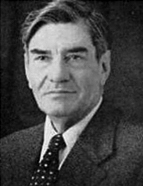

Meanwhile, Cortesão became increasingly active in growing political and ideological activities against the Oliveira Salazar dictatorship, particularly from Spain, where he went into exile. After the outbreak of Spanish civil war, he took refuge in London. During his exile in England, Cortesão contributed to the war effort as a volunteer from 1942 to 1945, earning a commendation from King George VI. In 1944, under the patronage of the Hakluyt Society, The Suma Oriental of Tomé Pires was published in London, based on an unpublished codex discovered by Cortesão in September 1937 in the library of the Chambre des Députés in Paris. The volume also included the book and atlas by the cartographer and pilot Francisco Rodrigues.
Between 1946 and 1952, Cortesão held senior positions at UNESCO in areas related to the history of science and culture. In 1950, at the invitation of his friend Charles R. Boxer, he delivered an exclusive lecture at King's College, University of London, highlighting Portugal's contributions to scientific navigation and cartography. In 1953, in an article published in Imago Mundi journal, he announced the The North Atlantic Nautical Chart of 1421, and later released his most comprehensive work on the subject in Coimbra, in 1954. In late 1949, Cortesão discovered a Venetian nautical chart that led him to develop a more traditional thesis regarding the presence of Portuguese navigators along the American coasts in the early 15th century. Although he faced heated criticism from proponents of the traditional Columbian paradigm, he continued his research, firmly standing by his original beliefs. In 1960, as part of the celebrations marking the 5th centenary of Prince Henry the Navigator's death, Cortesão co-authored Portvgaliae Monvmenta Cartographic a alongside Teixeira da Mota. This work became his magnum opus, the result of a comprehensive six-year research project cataloguing the work of Portuguese cartographers from the 15th to the 17th centuries. In April 1961, the University of Coimbra awarded him an honorary doctorate in Mathematical Sciences, in recognition of his academic research into the cartography of the Discoveries. Later that year, in October, he received an honorary doctorate in Letters from St. John’s University in Canada. In the same year, President Américo Thomaz awarded Cortesão the Grand Cross of the Order of Prince Henry the Navigator, the highest honour, which had been created in 1960. In the late 1960s, in collaboration with Luís de Albuquerque, Cortesão published the História da Cartografia Portuguesa [History of Portuguese Cartography], a work he left unfinished, as well as a controversial essay on Vasco da Gama in 1973.
